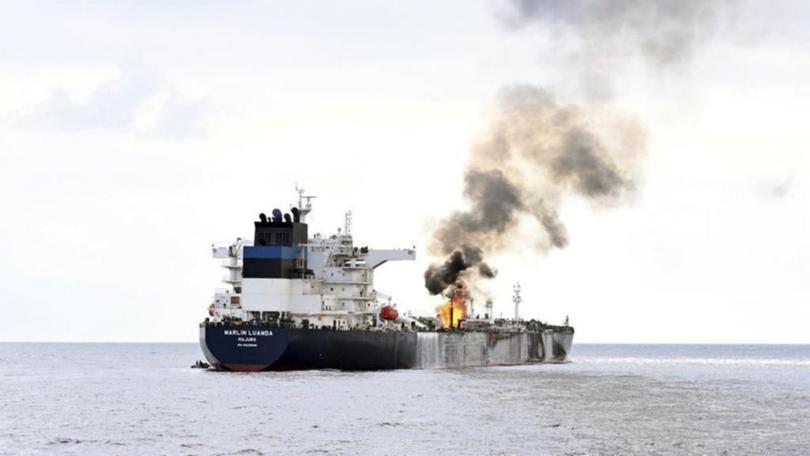German warships down Houthi drones as Red Sea shipping lane struggle continues
The Red Sea confrontation represented ‘probably the most dangerous deployment of the German navy for many, many years’, the German government said.

A German naval frigate has shot down drones deployed by the Iran-backed Houthi militia in Yemen for the first time, as part of an EU naval mission in the Red Sea to protect commercial shipping.
The Hessen shot down two drones in quick succession on Tuesday evening, the German operations command said.
The targets were successfully hit, and “there was no injury to personnel or damage to property on the frigate,” the command centre said.
Sign up to The Nightly's newsletters.
Get the first look at the digital newspaper, curated daily stories and breaking headlines delivered to your inbox.
By continuing you agree to our Terms and Privacy Policy.This was the German navy’s first confrontation during this mission which involved live weapons.
Shipping risks have increased due to repeated strikes by the Iran-aligned Houthis in the Red Sea and Bab al-Mandab Strait since November in what they describe as acts of solidarity with Palestinians against Israel in the Gaza war.
US and British forces have responded with several airstrikes on Houthi facilities but have so far failed to halt the attacks.
The warship identified a suspicious drone on Monday but was unable to shoot it down successfully, the spokesperson added.
France, Greece and Italy are among countries that will participate in the EU mission that initially will see three vessels under EU command.
Participating countries will be mandated to protect commercial ships and intercept attacks, but not take part in strikes against the Houthis on land.
“This is ... probably the most dangerous deployment of the German navy for many, many years,” a German government spokesperson told a briefing.
The Houthis, who control Yemen’s most populous regions, sent shipping officials and insurers formal notice of what they termed a ban on vessels linked to Israel, the US and Britain from sailing in surrounding seas.
The ban and the ongoing attacks may lead to an expansion of the areas deemed unsafe for sea navigation, further restricting insurance capacity and increasing premiums for vessels operating in or near these areas, Sebastian Hov, CEO of 18 Insurance, told Reuters.
“The increased insurance costs, along with the diversion of ships to longer routes to avoid high-risk areas, will strain global supply chains,” he said.
There was no update on the fate of the abandoned cargo vessel Rubymar after it was hit by a Houthi missile on February 18 in the southern Red Sea and was leaking fuel. The vessel remains submerged with water amid fears it will sink.
